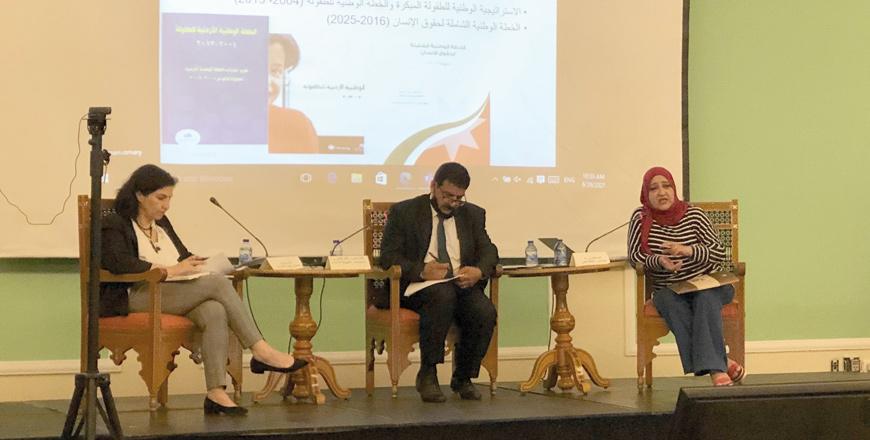You are here
Family affairs council drafting law seeking ‘child-sensitive justice system’
By Laila Azzeh - Dec 22,2016 - Last updated at Dec 22,2016
AMMAN — The National Council for Family Affairs (NCFA) is drafting a national law on children’s rights to move towards a child-sensitive justice system.
The draft — being formulated in cooperation with public, private and civil institutions — aims at providing a modern legislation that protects children and ensures their wellbeing, a move that is in direct implementation of previous workshops held by the NCFA with lawmakers, according to NCFA Secretary General Fadel Hmoud.
“The council pays special attention to early childhood. We are working to advocate for enacting legislation that improves protection measures and quality of services provided for children,” he said.
Hmoud noted that the binding reasons for enacting a children’s right law are in line with the 2011 constitutional amendments, which entails that the law shall guarantees the protection of motherhood, childhood and elderly.
At a workshop held earlier this week, Amman 3rd District MP Khamis Atiyeh underlined the need for a law that protects children, saying that deputies will not spare any efforts to cooperate with civil society institutions in this regard.
Jordan ratified the Convention on the Rights of the Child in 1991.
In 2014, the UN children’s rights committee had several recommendations for Jordan, namely abolishing Article 62 of the Penal Code, which stipulates that parents can punish their children for disciplinary purposes in accordance with “general norms”.
The committee also called for expediting the annulment of Article 308 and drawing up a mechanism to obligate reporting on child abuse and sexual exploitation.
The UN panel also urged the Kingdom to reconsider its reservations on articles 14, 20 and 21 of the Convention on the Rights of the Child, among other recommendations.
Under Article 14, states parties are required to “respect the right of the child to freedom of thought, conscience and religion”.
They are also required to “respect the rights and duties of the parents and, when applicable, legal guardians, to provide direction to the child in the exercise of his or her right in a manner consistent with the evolving capacities of the child”.
“Freedom to manifest one’s religion or beliefs may be subject only to such limitations as are prescribed by law and are necessary to protect public safety, order, health or morals, or the fundamental rights and freedoms of others,” the provision stipulates.
Article 20 stipulates that a child “temporarily or permanently deprived of his or her family environment, or in whose own best interests cannot be allowed to remain in that environment, shall be entitled to special protection and assistance provided by the state”.
It says that state parties are responsible for ensuring alternative care for such a child, such as “foster placement, kafalah of Islamic law, adoption or if necessary placement in suitable institutions for the care of children”.
Article 21 has to do with states that allow for adoption.
Related Articles
World Day for Prevention of Child Abuse arrived this year with a packed agenda to improve children’s rights in Jordan.
DEAD SEA — The National Council for Family Affairs (NCFA) kicked off a two-day workshop on Saturday in collaboration with UNICEF to mobilise
AMMAN — Recent evaluations carried out by UNICEF have shown that a 20 per cent of the children in Jordan are still suffering from multidimen

















